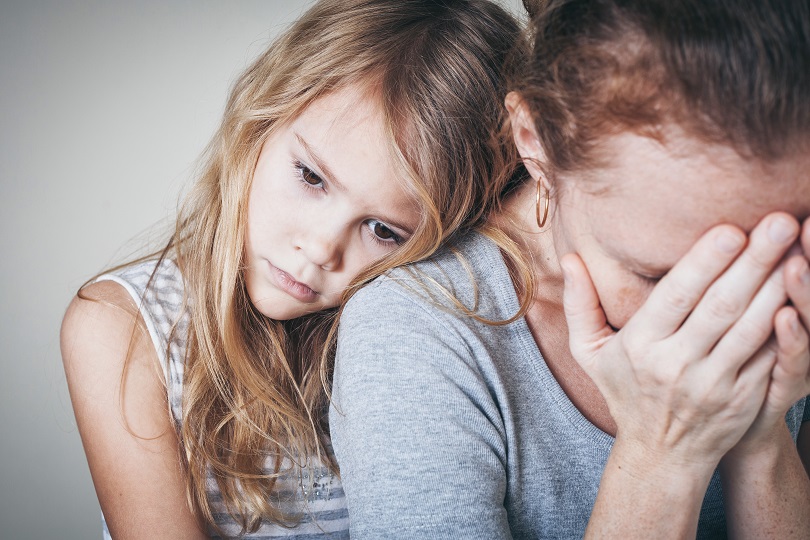Anxiety and Depression
Bob Rich’s Self-Therapy Guide: Heredity and Environment
Bob Rich’s book From Depression to Contentment: A self-therapy guide is therapy in your pocket. Depression, anxiety, and other forms of suffering are all too common in our crazy world. Bob teaches you how to rise from that to “normal,” which is the walking wounded, then far above that, to inner strength enabling you to cope in any situation.
Recovering the Self published the first segment of Bob’s book in a series of posts starting from commentary on staying sane in a crazy world and ending with the quest for meaning via correspondence with young minds. The second segment of Bob’s work begins here with special attention to the meaning of depression, happiness, and resilience as well as the various influences in early and later life that make one vulnerable to depression.
In the previous post, Bob touched briefly introduced readers to the brothers of depression. In this fourth segment of his discussion, he relates the tendency to develop depression to heredity and the social environment in which a child grows up.
Heredity and Environment
People are complex beasties. Behavior, including thoughts and emotions, is the result of a very complex network of causes. It’s not a question of heredity vs. environment, but, for any particular event or tendency, the intricate interaction of many hereditary and environmental influences.
No investigator has found a gene, or collection of minor genes, for any “mental disorder,” including depression. All the same, each of us has a pattern of genetic strengths and weaknesses. My genetic profile makes me safe from delusions and hallucinations, and I don’t easily get anxious. Put enough pressure on me, however, and I become sad, withdraw from human contact, feel hopeless and apathetic.
There is an interaction between genetic weaknesses and how we respond to pressure. To understand this, look at something simpler like alcoholism. Some rare people can get drunk every day for years, until their liver and brain are destroyed; but if they can’t grab a drink, they don’t suffer withdrawal symptoms. There is no chemical addiction. At the other extreme are people who are hooked after getting drunk once. Most of us are in between. This is the genetic component. The environmental part is of course whether you indulge, how badly, and how often. Even the most susceptible person will avoid alcoholism by staying sober.
Similarly, some people will simply never get depressed. When they suffer losses, they experience grief, which is a normal reaction. When they see someone else in a terrible situation, they may show empathy by feeling sad for that person. However, regardless of the pressure life puts on them, they never react with ongoing low mood, withdrawal, apathy, loss of energy, etc. They break in another direction, such as explosive violence, or addictive behavior, or ongoing, gut-wrenching anxiety, or hallucinations and delusions, or of course a mixture of several of these.
Others are so susceptible to experiencing the depressive symptoms that they fall into the pit at very little provocation. They are rare; again, most of us are between the two extremes.
Depression runs in families, but this isn’t evidence for heredity-only. As little children, we model on the important people in our lives: parents, siblings, teachers, other kids. That’s why “Do as I say, not as I do” doesn’t work. My grandfather’s reaction to being sent to the Ghetto was an attempt to kill himself (which in retrospect may have been wisdom). As a toddler, I absorbed the emotional atmosphere, even if I didn’t have much understanding of words yet.
Here is an interesting fact: when people adopt a baby, they somehow choose one who will grow to resemble them even in physical characteristics. But then, haven’t you occasionally seen the same with pets?
If your potential weakness is to become depressed and you have a child, natural or adopted, chances are that child will grow into an adult with the same vulnerability.
Homework
You can’t do anything about a genetic tendency to react to overwhelming pressure with depression, but you can simply accept this pattern. It’s no worse than the others.
Examine your family history. Identify the people whose depressive reactions you learned to model on, the particular memories of events that taught you that this is the way to react to pressure. Then find other role models, and self-consciously, deliberately copy them. This can be an ongoing project for years.
– Dr. Bob Rich






One thought on “Bob Rich’s Self-Therapy Guide: Heredity and Environment”
Comments are closed.